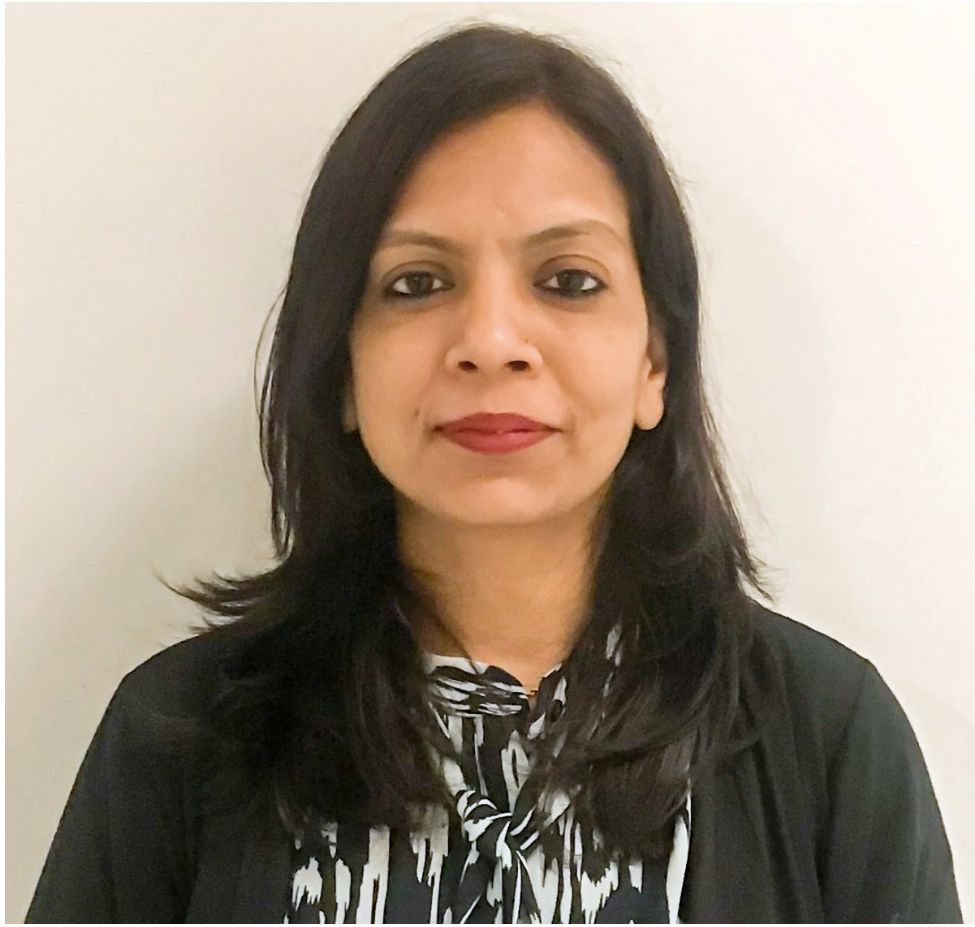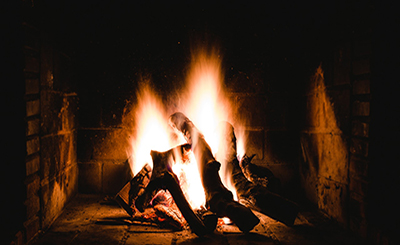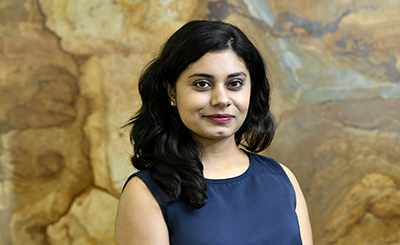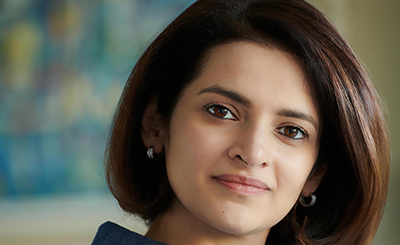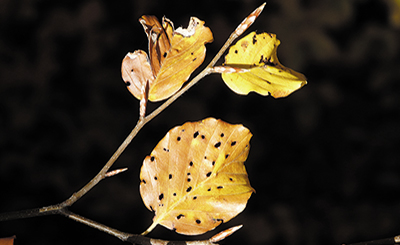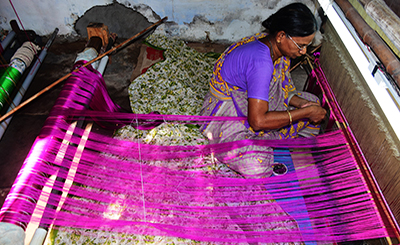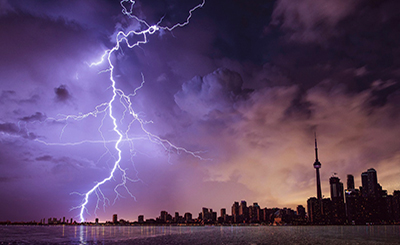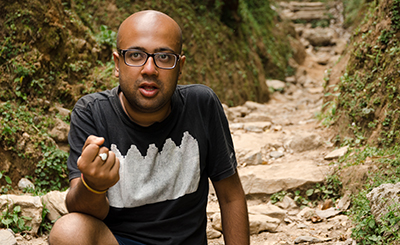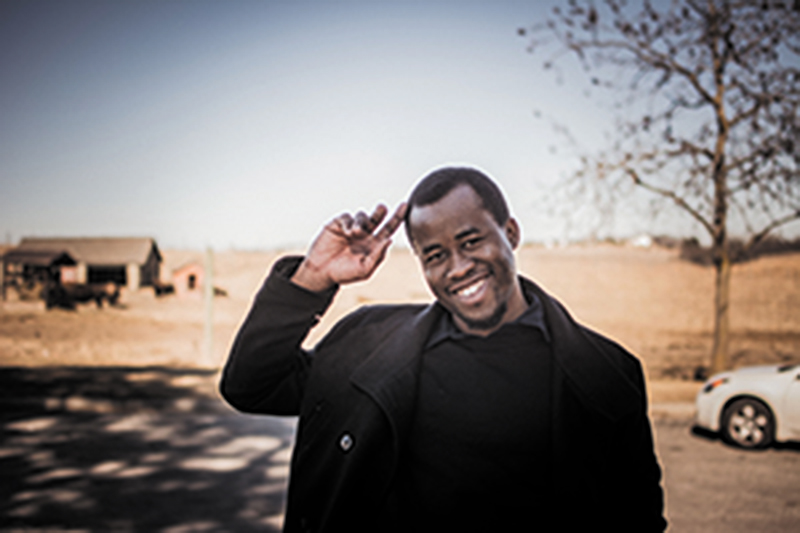
Shortlisted for the Man Booker Prize 2015, Nigerian writer Chigozie Obioma’s debut novel, The Fishermen, won the inaugural Emerging Voices prize for African and Middle Eastern fiction. The New York Times termed the 28-year-old author as the true “heir to Chinua Achebe”. Obioma, however, feels that the Achebe description was “greatly inflated”. He says, “I grew up reading and seeing Achebe as the greatest of African writers, and I did not in any way see myself as the one who would want to wear his shoes.”
The comparisons, however, did not stop at Achebe. Obioma has also been called as “African Cormac McCarthy”: The Fishermen has also been termed as “The African Kite Runner”. The writer, whose debut novel has been translated into 22 languages, says that he “consults” Achebe to “school myself in the wisdom of our shared fathers; I read him to understand Ome-nani”. And Achebe is not the only one. There are writers from Africa writing in the same tradition, like D.O. Fagunwa, Amos Tutuol and Wole Soyinka. Obioma says he “consults” them for Yoruba philosophy.
The Fishermen is the story of four middle-class Nigerian brothers — Ikenna, Boja, Obembe and Benjamin — who defy their strict father’s warnings in his absence and fish in the Omi-Ala, a “forbidden” river, where “dangers” lurk. There, a madman, Abulu, prophesies that the eldest, Ikenna, will die at the hands of one of the brothers. This threatens to tear the bond of the brothers apart. The story is narrated by the now-adult Benjamin, the fourth brother, as a recollection of past events, with characters speaking in many tongues — Igbo, Yoruba and English.
Obioma began writing the novel — which blends the mysterious with the murderous and the mythical with the real — in 2009 when he was living in Cyprus to complete his bachelor’s degree at Cyprus International University. He finished the novel during a residency at OMI’s Ledig House in 2012 and completed an MFA in Creative Writing at the University of Michigan.
An Assistant Professor of literature and creative writing at the University of Nebraska-Lincoln, Obioma says that The Fishermen was “inspired by a feeling of consummate nostalgia”. He says, “I had gone to Cyprus to school in 2009, and, being greatly homesick, had begun to miss my family — of twelve children — so much that when, one evening, my father called to tell me about the increasing closeness of my two oldest brothers who fought a lot while growing up, I knew a story had been birthed.”
Obioma, who is already working on his second novel, a love story, says that usually he allows the story to “gestate in my mind for a while”. He puts it down when it’s “fully formed”. He says, “At the moment of putting down the story on paper, the structure manifests itself, and clings to the created word in ways that becomes undetachable. It is then that I feel I have come to the gates of a book, and I slowly allow myself to enter and meander until the whole becomes a whole.”
Excerpts from an interview:
You’re being described as the heir to Chinua Achebe. Do you think it’s a heavy burden to bear? How conscious are you of bearing that burden?
That description was a greatly inflated one. I grew up reading and seeing Achebe as the greatest of African writers, and I did not in any way see myself as the one who would want to wear his shoes. Hence, I don’t actually see the label as an entrustment, to me, of a garment to wear. Hence, there is no “burden”. What it does for me, though, is that it validates my hope that I am transcribing the African literary consciousness, writ large in the distinct brand of the Igbo tragedy, which is what both Things Fall Apart and Arrow of God are, as is their younger brother, The Fishermen.
How has Achebe shaped your understanding of the world around you and its realities?
Achebe’s works were one of the earliest I read. I have said before that I believe that the greatest works of fiction must be based, or seated, on a philosophical base. There has to be something that the work is saying at a deeper level of the spirit plain of the cultural mind — and by the cultural mind I mean, the mind as it lives within the bounds of a certain culture. This culture, for me and Achebe, is the Igbo one — one of the largest tribes in West Africa. A great Igbo philosopher, I consult Achebe to school myself in the wisdom of our shared fathers; I read him to understand Ome-nani. But I also consult D.O. Fagunwa, Amos Tutuola, Wole Soyinka, and others for Yoruba philosophy.
In a recent piece in The Guardian, Taiye Selasi argues that African writers are often pigeonholed. She argues that writers from Africa are not granted artistic freedom as much as other authors do and are often made to bear the burden of representing their continent. What is your take on the argument? Do you think of yourself in terms of any classification or do you resist it?
I see myself as a writer born in Africa, and as an Igbo and Yoruba philosopher. But my audience is the Everyman. I am not, nor do I hope, to be bearing or representing Africa. Africa is my subject, as can be Europe or Cyprus, or America. I’m a writer, not an Ambassador or even a politician.
What was the trigger for The Fishermen? Did you have to work a lot on its structure and texture?
The Fishermen was inspired by a feeling of consummate nostalgia. I had gone to Cyprus to school in 2009, and, being greatly homesick, had begun to miss my family — of twelve children — so much that when, one evening, my father called to tell me about the increasing closeness of my two oldest brothers who fought a lot while growing up, I knew a story had been birthed. Usually, I allow the story to gestate in my mind for a while, then, I put it all down fully formed. And I can say that at the moment of putting down the story on paper, the structure manifests itself, and clings to the created word in ways that becomes undetachable. It is then that I feel I have come to the gates of a book, and I slowly allow myself to enter and meander until the whole becomes a whole.
In first novels, writers often wrestle to get their voice, to get it right. How was this process for you? Were you conscious of the “African tradition” of the novel, drawing on myths, fables and oral forms?
I had written a few many things before The Fishermen although they were mostly in my computer, hence, I did not think I had the anxiety of finding my “voice”. I started writing from when I was nine or so. And from that early age, I had always known the things that moved me in fiction. I had always known that I had been called by the English Language to be its disciple, and I had said, with the strongest passion possible: “Here I am, Lord, send me!”
But one is necessarily shaped by the environment in which they grow and thrive, and I was shaped by the literary environment in which I grew and thrived. In that environment, the works of the African writers loom large: Achebe, Fagnwa, Tutuola, Soyinka, as well as others. Thus, I was, of course, fed by these writers and developed a sense of how a story is and what it is and can be. But also, I fed much on Greek tragedies and Shakespearean ones at the same time —in my earliest formation as a manifest creator of fiction.
While The Fishermen is the portrait of a family, it also captures the transition of a country well. Was it a conscious choice to transmute your personal experiences into something larger, into a tale of social disintegration, capturing Nigeria's slide into the Abacha dictatorship?
The Fishermen is in no way an autobiographical novel. As much as I’d wish I knew one madman who had the power to see the future — as interesting as that is — I don't think I ever saw anyone like that, nor will I ever see. All of my siblings are alive, and none killed the other. What happened was that, as every other writer does, I used figments of my own experience to make up characters and fine details to create the story. But, that said, the novel, I hope, captures that pivotal period in the life of the nation, Nigeria — a time in its history that I believe left a very lasting impression on the growth of the country even beyond the Abacha regime unto 2003 when the nation experiences its now lasting transition into a civilian-to-civilian regime.
What was it like growing up in Akure with 11 siblings? What memories do you have of your childhood?
It was an overwhelmingly delightful experience. The house was crowded, and there were times when we had to compete for some resources — like that leftover cake after a birthday party (our favourite time!) and it happened nearly every month. But, generally, there was a sense of community built in and ingrained in our minds from that time. You get to discover that you are not simply an individual, but you live for other people. If you were sick, many people cried and prayed for you to get well. It made you develop that ability to care for others.
Thus, instead of individual success, we always thought we were representing “The Obiomas”. It was a blessed time. One thing: the power of consanguinity is real, and it is what I hope I explored in The Fishermen. We were so close, myself and all my siblings, that when I first went to college, I discovered I didn't have other friends.
Could you share your early literary influences?
That list is extremely exhaustive but most prominent amongst them are Amos Tutuola, Thomas Hardy, Chinua Achebe, William Shakespeare, Euripides, Homer, Sophocles, D.O. Fagunwa, Wole Soyinka, and John Bunyan.
Tell us about some young contemporary African writers you admire.
We all agree that Chimamanda Adichie is a phenomenal voice in African Literature. Half of A Yellow Sun made me see no real need to write about the Biafran war — at least for now. Okey Ndibe is another astonishing writer. Foreign Gods Inc. is a great novel. I also love the works of Henrietta Innes, Helon Habila, NoViolet Bulawayo, Chinelo Okparanta and many others. Uwem Akpan's collection, Say You’re One of Them, is a wonderful collection, and he is a fantastic writer.
Could you tell us something about your second novel, The Falconer?
It is a love story. Period.
More from The Byword
Comments
*Comments will be moderated



